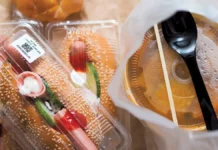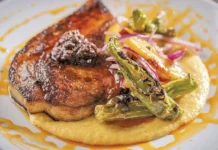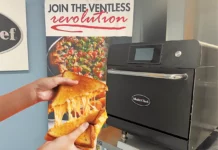
Los Angeles County filed a lawsuit against Grubhub last month alleging that the company engaged in false advertising and deceptive business practices.
The lawsuit specifically accuses Grubhub of using bait-and-switch tactics for pricing, which ultimately misrepresents the cost of food for consumers.
The lawsuit claims that Grubhub’s pricing practices are misleading and deceptive, leading consumers to believe they are paying one price for their food when in reality they are being charged a higher amount.
This type of behavior not only harms consumers financially but also erodes trust in the company and the overall food delivery industry.
Grubhub has faced criticism in the past for its pricing practices, with many consumers expressing frustration over unexpected fees and charges.
This lawsuit by Los Angeles County signals a growing pushback against companies that engage in deceptive practices and prioritize profits over transparency and honesty.
This lawsuit shares similarities with complaints filed in Chicago and Washington D.C. where Grubhub was sued for deceptive business practices in 2021 and 2022, respectively.
In D.C., Grubhub was ordered to pay $3.5 million in settlement fees, as well as $800,000 in civil penalties in December 2022.
That same month, Uber Eats avoided a lawsuit from the city of Chicago by working with the city on a $10 million out-of-court settlement.
Service fees have long been part of the consumer experience while using food delivery apps.
The lawsuit claims, however, that Grubhub’s alleged practice of tacking on and not disclosing a number of fees, including ones for small orders, driver benefits, and miscellaneous services, violates California law.
The lawsuit alleges that Grubhub often advertises an option to “order online for free,” but does not actually waive any fees at checkout.
The fees, according to the suit, are tucked into a hidden drop-down menu rather than automatically appearing in the shopping cart, making them easy to miss by consumers.
The complaint further alleges that Grubhub does not deliver search results based solely on consumers’ queries or delivery distance, but factors in “undisclosed, paid marketing arrangements.”
Delivery drivers are an essential, and indispensable part, of the Grubhub ecosystem.
One of Grubhub’s mandatory fees included with each delivery order is a “Driver Benefits Fee” that the company says “helps guarantee minimum wage and healthcare benefits for our drivers so they don’t have to depend on tips.”
Grubhub uses this fee to fund its Proposition 22 obligation, which requires rideshare and delivery companies to provide benefits to drivers including minimum compensation and health care subsidies.
The lawsuit filed last month alleges that most drivers are not eligible for this health care subsidy due to Grubhub’s requirement for a minimum of 15 hours of “engaged time” each week.
Most drivers don’t meet this mark every week since time is only considered “engaged” between choosing to accept an order and dropping it off.
The complaint alleges that Grubhub misleads consumers in its language, implying that all California drivers are guaranteed health benefits through the fee.
Additionally, the suit alleges that Grubhub’s language deceptively implies to consumers that drivers are no longer dependent on tips.
In a statement a Grubhub spokesperson said: “Grubhub is disappointed Los Angeles County has moved forward with this lawsuit and plans to aggressively defend our business in court. Our practices have always complied with applicable law, and in any event, many of the allegations are incorrect or have been discontinued. We’ve sought to engage in a constructive dialogue with the County Counsel’s office to explain our business and look forward to continuing to support Los Angeles restaurants, diners, and drivers.”
Restaurants have come to rely on app-based delivery services for an additional income stream, especially during the COVID-19 pandemic.
For years, online delivery platforms like Grubhub and UberEats have offered convenient ways for diners to discover and order food from restaurants but have also seemingly contributed to an imbalanced relationship between the consumer, the independent contractors delivering food, and the restaurants that often experience high rates of requests for refunds.
The county’s lawsuit alleges that Grubhub has charged restaurants for refunds without vetting the accuracy of the complaint with the restaurant.
Restaurants are not informed until after the refund has been issued and have no opportunity to refute the chargeback.
The suit alleges that this practice has caused financial harm to California restaurants, with one owner in Los Angeles County quoted as saying that the refunds cut into “as much as a quarter of the revenue his restaurant earned on Grubhub’s platform” in the complaint.
But for now, Los Angeles County counsel Dawyn R. Harrison noted that the “lawsuit seeks to hold Grubhub accountable for their unfair and deceptive business practices that deceive and overcharge consumers, exploit drivers, and unfairly short-change restaurants on order refunds,” and that her office “is committed to protecting County workers and residents and holding businesses accountable for violations of consumer and workers.”
This lawsuit, and the similar ones that preceded it, raises questions about the sustainability of the delivery app operating model in Los Angeles.
In the past few years, fee caps and delivery and service worker benefits have become a recurring flashpoint for discussion and litigation in cities across the country.
Come July 1, a new California law will ban unadvertised service fees and surcharges on restaurant menus, and fast-food workers have recently formed a new minority union with the SEIU.























